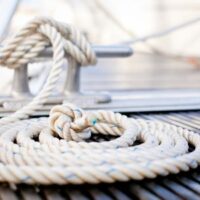Risks and Legal Implications of Dock and Pier Accidents

Dock and pier accidents are common in maritime environments, whether in bustling commercial ports, serene marinas, or private waterfront properties. Understanding the causes of these accidents and the legal distinctions between different types of waterfront structures is essential for those who live, work, or spend leisure time near the water.
Common Causes of Dock and Pier Accidents
Dock and pier accidents can occur due to a variety of factors, but one of the most common causes of injury at a loading dock is slip and fall accidents. These accidents are often the result of wet or oily surfaces, inadequate lighting, poor maintenance, or obstructions on the dock. In some cases, the design of the dock or pier itself can contribute to these hazards, especially if it does not provide adequate traction or if it lacks proper handrails.
Another frequent cause of accidents is improper docking procedures. When vessels are not properly secured, they can shift or drift, creating gaps between the dock and the vessel that can cause falls. Additionally, the movement of the water can create instability on the dock, particularly if the structure is old or not well-maintained.
Equipment-related accidents are also a significant concern, especially in commercial settings. This can include injuries from loading and unloading cargo, operating machinery such as forklifts, or even being struck by moving vessels. These accidents often involve heavy machinery or large loads, making the potential for serious injury quite high.
Lastly, electrical hazards are a serious risk on docks and piers, particularly those that are equipped with lighting, power outlets, and other electrical systems. Faulty wiring or improper grounding can lead to electrocution, especially in a wet environment where the risk of electric shock is increased.
What is the Most Common Cause of Injury at a Loading Dock?
As mentioned, the most common cause of injury at a loading dock is slip and fall accidents. These accidents are particularly prevalent in environments where the dock surface is often wet or oily, such as near water or where goods are frequently loaded and unloaded. Slip and fall accidents can lead to a range of injuries, from minor bruises to serious fractures or head injuries, depending on the circumstances.
To mitigate the risk of slip and fall accidents, it is important to ensure that dock surfaces are kept clean and dry, that proper drainage is in place, and that non-slip materials are used where appropriate. Regular maintenance and inspections can also help identify potential hazards before they lead to accidents.
Difference Between a Marina and a Dock
Understanding the difference between a marina and a dock is important, particularly when considering the legal implications of accidents that occur in these areas.
A dock is a structure that extends from the shore into the water, providing a place where boats can be moored, loaded, and unloaded. Docks can vary in size and complexity, from small private docks to large commercial ones used for industrial purposes. Docks are typically used for mooring individual boats and may be privately owned or part of a larger waterfront property.
A marina, on the other hand, is a facility that provides docking and other services for multiple boats and yachts. Marinas are often equipped with amenities such as fuel stations, repair services, and supply stores, and they can accommodate a wide range of vessels. Marinas are usually larger than individual docks and may offer long-term or short-term mooring, as well as storage options. They are often commercially operated and cater to recreational boaters as well as commercial vessels.
The distinction between a marina and a dock can have legal implications, particularly in cases of accidents or injuries. Marinas, being commercial operations, are typically subject to more stringent safety regulations and liability standards. Owners and operators of marinas are responsible for maintaining safe conditions, providing adequate security, and ensuring that the facilities meet all applicable regulations.
Legal Considerations in Dock and Pier Accidents
In many cases, the owner or operator of the dock, pier, or marina may be held liable for injuries if it can be proven that they failed to maintain a safe environment. This could include failing to repair damaged surfaces, neglecting to provide adequate lighting, or not securing vessels properly.
In commercial settings, workers injured on docks may be entitled to compensation under maritime law, particularly if they are covered by the Longshore and Harbor Workers’ Compensation Act (LHWCA). This federal law provides benefits to workers injured on navigable waters or in adjoining areas like docks and shipyards.
For recreational users, personal injury claims may be pursued under state law, depending on the circumstances of the accident. This could involve proving negligence on the part of the dock or marina owner, such as not addressing known hazards or failing to provide adequate warnings.
Contact Frank D. Butler, PA— www.888BoatLaw.com
Dock and pier accidents are a significant risk in maritime environments, but understanding the causes and legal implications can help you navigate these situations effectively. Whether you are dealing with a slip and fall at a loading dock or an accident at a marina, knowing your rights and the responsibilities of property owners is essential.
If you have been injured in a dock or pier accident, it is important to seek legal advice. Contact Frank D. Butler, PA, for expert guidance and representation. Our firm specializes in maritime law and personal injury cases, ensuring you receive the compensation you deserve. Reach out to us today for a consultation.
Sources:
leg.state.fl.us/Statutes/index.cfm?App_mode=Display_Statute&URL=0300-0399/0327/Sections/0327.02.html
pierofdnort.com/blog/info/pier-dock-wharf-difference/b/pdn30/
